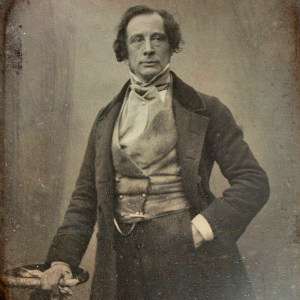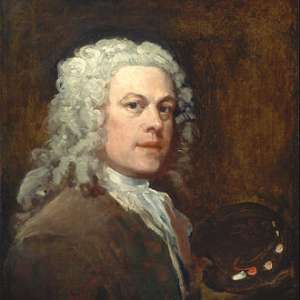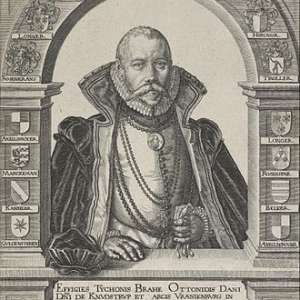
Is My Child a Prodigy?
While there is no doubt in every parent's heart that their child is a brilliant prodigy, a wonder kid, there is actually a myriad realm of psychological research which outlines the specific parameters of a ‘child prodigy’. The data from the research on this topic can help us answer the question, “Who can be considered a ’child prodigy’?”
Accepted Definitions For 'Child Prodigy'
While there is a general notion of a prodigy being someone amazingly talented in a certain scientific or artistic field or just being a child with unique intellectual talent, some have tried to provide a better definition. Compiling all of those definitions suggests that a child prodigy is a person under the age of ten who:
- Produces meaningful output in some domain equivalent to that of an adult expert or displays expert capabilities of the fundamentals in a field usually only undertaken by adults. (took out a redundant part)
- Their long-term working memory is far superior in comparison to normal. children.
- Tends to have a more focused, specialized, and domain-specific form of giftedness, like in mathematics or arts -. (this sentence doesn't sound good, it is too redundant)

While most prodigy talents are seen in rule-based fields, like chess or mathematics, making it easier to identify, a prodigy can be gifted in a not so easy to identify areas such as art. Maybe that is why most research on child prodigies focuses on mathematical genius.
How to Decide Whether a Child is a Prodigy?
After understanding the definitions of a prodigy, it is easier to assess whether a child is truly a prodigy - like Mozart, Picasso, and Belize Pascal - or “only” a gifted child - a title relevant for about ten percent of all children - while a prodigy is expected in only 1 in 5 million children. Generally speaking, Prodigies are so unique that you would just know it (Wolfgang amadeus Mozart, By the age of 8, composed his first symphony while Terence Tao, mathematics genius, scored a 760 on the math portion of the SAT - also at the age of 8 while Tao becoming the youngest person in history to win a medal in the International Mathematical Olympiad - only at 10.). So, let’s explore the checkboxes:
- Does he have an Excellent working Memory? Prodigies have amazingly good working memory, which is more than the ability to memorize: it’s the ability to hold memory at the same time as manipulating incoming information.
- Is he exceptionally skilled in a specific field? Just for a reference - Picasso completed his first painting at the age of 9. Drew Peterson played a piano concert in Carnegie Hall at 6. William James Sidis, the math prodigy, enrolled into Harvard university at 11, making him the youngest ever student. Additionally, Prodigies are usually focused in the areas of math, chess, music and athletics.(note: in the paragraph at the top of this page you provided examples of mozart and terence tao, one in art and the other in math.
- Intense drive. prodigious children have an intense drive to master a field and are found performing during all of their spare time.

Are there tests to determine if a Child is a Prodigy?
While a lot was said about DNA tube testing for babies, one thing must be right - parents around the world are eager to find out whether or not their child is gifted and maybe a prodigy. The reason is obvious - high intellect is linked to success in later stages in life. But what are the tests that can really help discovering it?
IQ Test - the more known form of IQ testing is also available for children. There are several institutions who provide them. Here are the probabilities:
DNA testing - while becoming increasingly popular, proponents of DNA testing for intellectual traits are highly criticized while experts say the bottom line of this approach isn’t any more efficient than a crystal ball, i.e. the science behind it is not valid, at least not yet. With that being said, it does make sense to refine this test to become valid for the future., as today’s perception about prodigies is that they are born with prodigious potential - and progressively molded into geniuses.
Examples of Child Prodigies
Still not sure what a child prodigy is? Here are some highlights from 8 well known prodigies to help you get a better grasp of it:
Wolfgang Amadeus Mozart: A model for a prodigy, who played songs on the harpsichord at four years old and began to compose simple music at five. By the age of 8 he composed his first symphony.
Terence Tao: Mathematics genius who scored a 760 on the math portion of the SAT - by the age of 8.
John von Neumann: the Hungarian-American mathematician who was able to joke with his father in classical Greek as well as memorize pages from the telephone book and answer questions about the numbers, address, and names or just recite the page bottom to top.
Sor Juana Inés de la Cruz (born Juana Ramírez de Asbaje): This mexican prodigy learned to read at 3, learned Latin in 20 lessons and wrote her first dramatic poem when she was eight. To show her intellectual capabilities, a public demonstration took place where 40 professors quizzed her on their fields of knowledge - and they and all participants - were amazed with her depth and understanding.
Enrico Fermi: This mathematic-physic genius used to read geometric proofs and build electric motors by the age of 10. With photographic memory, he applied to the University of Pisa - shocking the admissions panel with a doctoral-level essay that solved the partial differential equation of a vibrating rod

Pablo Picasso: This art genius was born to a painter father. The legend says he could draw before he could talk, and that his first words were to ask for a pencil. Having his first oil painting when he was 9 years old at age 14 he was admitted to a prestigious Barcelona art school. A year later he completed “First Communion,” work that was displayed in a public exhibition - 1 out of about 22,000 artworks that Picasso would produce in his career. “When I was a child, my mother said to me, ‘If you become a soldier, you’ll be a general. If you become a monk you’ll end up as the pope,’” he later said. “Instead, I became a painter and wound up as Picasso.”
Blaise Pascal: Being homeschool by his father wasn't a walk in the park. His father wanted him to focus on languages, therefore banished mathematics texts from the house. That didn’t stop Pascal from secretly inventing his own terminology and independently discovering nearly all the geometric proofs of Euclid - by the age of 12. At 16, he produced an essay on conic sections so advanced that the famed philosopher Rene Descartes was convinced his father was the one actually doing it. by 19 he had designed and built a mechanical calculator known as the “Pascaline”.
Clara Schumann: This music prodigy didn’t speak until the age of 4. That didn’t prevent her - at the age of 7 - she spent up to three hours a day mastering the piano. At 10 she began composing her own pieces, and made her concert debut at the age of 11. While touring in Europe she won acclaim from the likes of Chopin and Liszt and astonished audiences with her ability to play from memory.
Does Child Prodigy equal Genius?
Genius is someone who can do things that very few people, if any, can do. Some say “can do” not only in theory - but in practicality as well. A Genius, unlike a prodigy, comes up with something new, while prodigies tend to do excellent things - in what was already there, whether it is music or math. The leap forward - unique and new creativity - doesn’t necessarily take place. A prodigy wouldn’t necessarily develop into an adult genius - someone that actually contributed to humanities knowledge or did extraordinary things with his intelligence. Wolfgang Amadeus Mozart, for example, was an exception to this and was both. It doesn’t mean prodigies' talent will go away as years go by, but they will not necessarily devote themselves as much as needed in order to contribute to a specific field as an adult - as the bar is much higher and more than just pure talent is needed. The secret sauce of creativity mixed with hard work doesn’t necessarily come along with prdiginess. So, if this logic applies then no: Prodigy does not mean Genius.
Are Prodigies Born or Made?
Some experts argue that prodigies benefit from years of intense, early practice, usually encouraged by ambitious parents. Others highlight prodigies’ innate abilities: for example, a 2014 study assessed 18 child prodigies and found that what they all had in common was a heightened attention to detail and exceptional working memory (the ability to store and process information over short time periods).

It is hard to say that if you will invest in a new born baby all that it takes, for example, to become a world class music/math/chess master he/she will succeed in that. It seems almost impossible to generate geniuses only with environmental incentives. While today’s understanding is that prodigiousness arises from a combination of innate traits and the “right” environmental simulations, there are still those who argue that it is more of a “born-with” quality than anything else. Researcher Anders Ericsson dismissed those claims through the greatest prodigy of all time - Mozart. He argues that Mozart and other geniuses achieved success in their fields through constant practice, commitment, and mass amounts of work. (would be nice too add in a link to the study) Others say that even if a natural ability exists, it does not necessarily translate into exceptional performance unless the talent is polished through practice. A lot of importance is emphasized on practice - while others say, “it doesn’t matter how long you’ll teach a monkey how to swim - he’ll never be as good as a dolphin…” a good support for this claim is drawn by the fact that a lot of prodigies are born to low class families where no special attention was given to them but there talent still “exploded”.
The supporters of the claim that prodigies are born rather than made also state that Prodigies have a significantly high IQ (i.e +130 while the average is 100). Also, prodigies are found to be emotionally and socially sensitive. They are extra alert to sounds, feelings, smells, and situations and such sensitivities cannot be gained through learning, they are genetically acquired. On the other hand, Mozart with no musical instrument around will remain a heading prodigy and an unfulfilled soul. Let’s not forget that Mozart’s father was a renowned music teacher who left his own career to focus on developing and honing Mozart’s talent. He created a supportive environment for Motzart to excel in music.
That being said, the common belief today is that prodigies are born, and then made. i.e. the child prodigy is born with the “right” hardware and software, but the environment can help gain exceptional talent through pointing them to the “right” direction while providing them with progressive simulations and practice - although not creating it. The longest ever study on giftedness emphasized that innate capabilities are far greater and have more effect on success than deliberate practice or outside factors like your socioeconomic status.
Does Being a Prodigy mean Successful life?
Success is perceived by most people as financial or academic attainment and world wide recognition, or something of this sort. Such achievements require a frog leap from a child prodigy status into a productive adult. This transformation is not easy. As an adult, the child prodigy will not receive special treatment as he received as a kid - he will be measured as an adult. Rather than doing adult tasks brilliantly he will be asked to come up with his own original work that actually succeed within reality. If the child doesn't grow up in a balanced environment, social relationships could create a barrier for his progress. All of those are real obstacles in transforming a child prodigy into a exceptional productive adult. While a child prodigy has some advantages - his success is not guaranteed.

A well known story of an unfulfilled potential is the story of william James Sidis.
In Summary
Is your child a genius? Definitely not! He might be a prodigy and a potential genius - but he is not yet a genius. He came to this world with a set of potentials that you can definitely promote. The future is actually up to the both of you, and even that only to some extent.
To read more on the subject, please visit the following pages:
About: In Geniuses.Club we strive to collect as much data as possible regarding geniuses and prodigies and make it accessible to all. The data will be updated here and often be provided through our newsletter. Not registered yet? Click here and register.
Have a comment? Want to contribute content? Click here













































